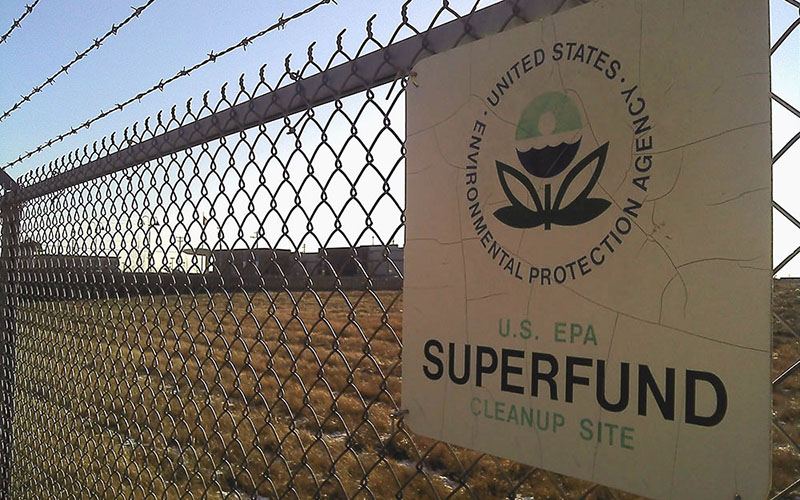
The Environmental Protection Agency says it’s continuing “strong criminal enforcement” in a time of smaller budgets by pursuing fewer, but bigger, criminal cases. (Photo by markzvo/Creative Commons)
WASHINGTON – Environmental prosecutions have fallen sharply under the Obama administration, a change the Environmental Protection Agency attributes to shift to focus on bigger, high-impact investigations.
According to Justice Department data accessed through the Transactional Records Access Clearinghouse at Syracuse University, prosecutions for environmental crimes fell from an average of 225 a year under President George W. Bush to an average of 181 a year under President Barack Obama.
In Arizona, environmental crime prosecutions peaked at 12 in 2007 under Bush’s administration, according to TRAC, but there haven’t been more than three in a year under Obama.
The EPA, the lead agency in half those prosecutions, said it continues “a strong criminal enforcement presence” that has a 90 percent conviction rate, but that its shift in focus has combined with reduced budgets to result in “fewer investigations overall.”
“Special agents carefully allocate our finite resources by going after the biggest, most serious offenders that affect the most people,” an EPA spokeswoman said in an email. “These crimes involve death or serious injury, multiple locations, and large or significant enterprises.”
But environmental activists say the shift in focus, and the subsequent drop in prosecutions, is a direct result of budget cuts and understaffing at the EPA.
“Under Obama, there has been a surprising disinvestment in environmental prosecution,” said Jeff Ruch, executive director of Public Employees for Environmental Responsibility.
Brett Hartl, endangered species policy director for the Center for Biological Diversity, said the budget is the main reason behind the drop in prosecutions.
“There are just less people at the EPA for prosecuting cases,” Hartl said, calling the low number of prosecutions “mostly a resource issue.”
Hartl does believe the EPA is “going for larger and more complex litigation and prosecutions.” But he said hostility toward the agency in the Republican-controlled Congress has led to decreases in its staff over the past five or six years, especially among those who worked in law enforcement.
According to the EPA, the agency’s enacted budget peaked in 2010 at more than $10 billion, but has since been cut back down to about $8 billion.
The agency’s workforce topped out at 18,110 in 1999 and hovered between that and just under 17,000 until fiscal 2013, when the number of workers dropped from 17,106 to 15,913.
But the EPA spokeswoman said that even with its “finite resources,” the agency has been successful in its criminal prosecutions. Cases the agency has pursued have included charges related to water and air pollution, illegally taken fish and wildlife, and hazardous waste management.
Convictions last year resulted in a total of 129 years of jail time, the spokeswoman said, more than $200 million in fines and restitution, and court-ordered environmental projects that the agency said were worth more than $4 billion.
But Ruch said these efforts aren’t enough.
There are fewer and fewer cases entering the pipeline, he said, because the agency’s staff is smaller than it has been under previous administrations.
He said this makes citizen groups like his more important than ever because of their ability to pursue civil lawsuits and push the government into action.
In fiscal 2008, the year before Obama took office, there were 914 civil lawsuits regarding environmental matters, according to TRAC. The number has fluctuated widely during his time in office, but peaked in fiscal 2013 at almost 1,300 – the same year the largest workforce cuts occurred.
Civil lawsuits dropped to just about 600 the next year, but are on the rise again, reaching 845 lawsuits in the last fiscal year.
Hartl agreed with Ruch that watchdog organizations matter even more when people violating environmental laws know there are “fewer cops on the beat.”
“If we don’t do it, unfortunately, no one else will,” he said.